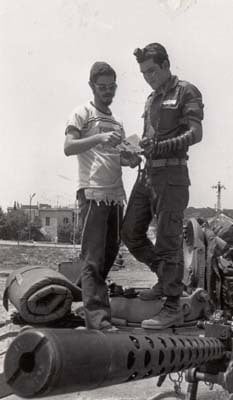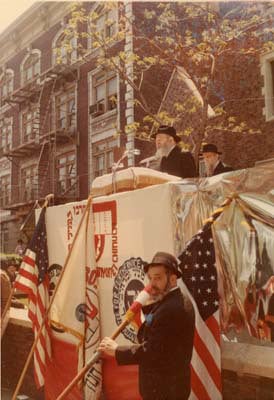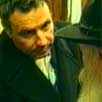In the spring of 1967, as the Arab capitals paraded their arms and openly spoke of overrunning the Land of Israel and casting its inhabitants into the sea, a great panic enveloped the land. The media was almost unanimous in its feeling that the small Jewish state was outflanked and outgunned by its enemies, and stood little chance of survival. It was obvious that the world was going to stand by once again and let happen whatever might happen.
The Rebbe stood out as a voice of confidence and encouragement. “The Guardian of Israel neither sleeps nor slumbers,” he said, quoting the eternal words of Psalms; G‑d watches over His people wherever they are, especially in the Holy Land.
On June 5, 1967, Israel launched preemptive strikes on its southern and northern frontiers. Six days later, the world stood amazed at the swift and bold victory. Within one dizzying week, Israel defeated five armies on three fronts and liberated territories of its promised homeland amounting to an area greater than its own size.
The Rebbe saw the heart of his nation open wide. It was a biblical moment, an opportunity of cosmic proportions, and the Rebbe urged Jewish leadership to respond. Speak about returning to tradition, and they will listen. Ask them to don tefillin, and they will roll up their sleeves. The Rebbe wanted the Six-Day War to be a Jewish victory.
“G‑d’s eyes rest on it always, from the beginning of the year to the end of the year” (Deuteronomy 11:12). The Rebbe saw this divine statement as the ultimate guarantor of Israel’s physical safety.
He was equally concerned with the spiritual state of Israel. This is the land referred to as the “Holy Land” by all peoples of the world, the Rebbe reminded us. Certainly we, to whom the land has been entrusted, must safeguard and cultivate its holiness.

The Rebbe was in constant communication with Israeli government and military leaders on matters of safety and security.
Whenever the issue of “land for peace treaties” came to the fore, the Rebbe, as he did on every issue, would look to the Torah for guidance. The Rebbe found that Torah law clearly states that yielding territory to an enemy in exchange for a promise of peace will bring not peace but more war and greater bloodshed. Israel’s peace and safety, the Rebbe repeatedly stressed, can be achieved only from a position of strength and confidence. Any sign of weakness or self-doubt is sure to encourage Israel’s adversaries toward further aggression and terrorism.
The Rebbe’s great concern for and intimate involvement with the Holy Land, both personally and through his thousands of followers and hundreds of institutions there, are legendary. The people of Israel responded in kind. His picture can be seen in army outposts and falafel stands from Eilat to Metulla, and everyone, from “the man on the street” to prime ministers and army generals, have turned to him for blessing and counsel.
Rashi's Explanation
"Said Rabbi Yitzchak: The Torah ought to have started with 'This month shall be to you . . .' (Exodus 12:2), which is the first mitzvah commanded to the people of Israel. Why, then, does it begin with 'In the beginning [G‑d created the heavens and the earth]'? . . . So that if the nations of the world say to Israel, 'You are thieves, for having conquered the lands of the seven nations,' they would reply to them: 'The entire world is G‑d's; He created it, and He grants it to whoever He desires. It was His will to give it to them, and it was His will to take it from them and give it to us.'"
Rashi’s commentary on Genesis 1:1—repeatedly quoted by the Rebbe as the ultimate, and only, answer to challenges of the Jewish people’s right over the Land of Israel







Join the Discussion